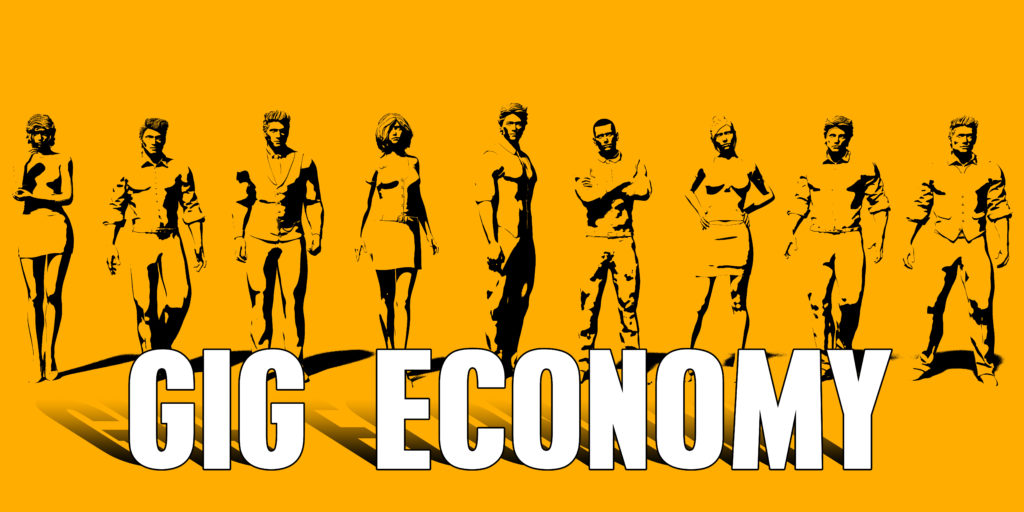The rise of the freelance economy is transforming how Americans handle their finances. This major shift in the labor market requires a new approach to managing money, prompting individuals to adapt to fluctuating income and navigate untraditional financial paths.
Freelancers, gig workers, and other independent contractors often face unique financial challenges, primarily driven by the absence of steady paychecks and employer-provided benefits. But simultaneously, they also encounter opportunities for financial growth and independence that regular employment might not offer.
The impact of the freelance movement on personal finances

One of the significant effects of the freelance revolution is the need for meticulous financial planning. With inconsistent pay, workers must be diligent in budgeting to cover essential expenses, such as rent, utilities, and groceries. Effective budgeting ensures that sporadic income can be stretched to last through lean periods.
Consequently, financial literacy has become a crucial skill for those navigating this new economic landscape. Being financially literate means understanding how to manage money wisely, save effectively, and invest intelligently. This knowledge equips freelancers to sustain their livelihood and even thrive despite irregular earnings.
Moreover, the lack of employer-sponsored benefits like health insurance or retirement plans necessitates a proactive approach in securing these safety nets independently. Freelancers must explore options like individual health plans and personal retirement accounts to safeguard their future and well-being.
Flexible saving strategies
Saving money can be especially tricky for those with inconsistent income streams. One effective approach is to create an emergency fund that can cover at least three to six months of expenses. This buffer provides peace of mind during periods without income and helps avoid debt. Additionally, automating savings can ensure that a portion of each paycheck, no matter how small, is consistently set aside.
Digital banking tools and apps designed for freelancers can assist in automatically transferring a set percentage of income into a savings or investment account. Furthermore, diversifying income sources can also be a strategy to mitigate financial risk. Freelancers can take on various side gigs, passive income projects, or part-time employment to create a more stable financial base.
Debt management and investment
Debt management is another critical aspect for those in the freelance sector. Paying off high-interest debt first and consolidating loans to lower interest rates can reduce financial stress and improve credit scores. It’s essential to have a clear plan in place and stick to it. Investing in the future is equally important. Freelancers should look into various investment options such as stocks, bonds, or mutual funds.
Opening an individual retirement account (IRA) or a solo 401(k) can provide tax advantages and a structured way to save for retirement. Enlisting the help of a financial advisor can offer personalized strategies tailored to the unique needs of gig workers. Professional advice can be invaluable in creating a balanced and effective financial plan.
Technology’s role in financial management for gig workers
Advancements in technology have made financial management more accessible for freelancers. A variety of apps and platforms can help track income, expenses, and savings effortlessly. These tools simplify the complexities of financial planning, making it easier to stay organized and on top of finances. Digital wallets and online banking offer convenient ways to manage funds.
Many services provide features like automatic expense categorization, real-time balance updates, and goal-setting tools. This technology can offer clarity and confidence in financial standing and future planning. Online marketplaces for freelancers also streamline work opportunities, ensuring a steady flow of projects that can translate to more stable income.
Apps for budgeting and saving
Numerous apps are specifically designed to assist freelancers with budgeting and saving. Popular options include Mint, which tracks expenses and categorizes them, and YNAB (You Need A Budget), which encourages proactive budgeting. These apps can integrate with bank accounts to provide a comprehensive financial overview.
Additionally, apps like Acorns and Digit help with automated savings and micro-investing. Acorns rounds up purchases and invests the spare change, while Digit analyzes spending habits to withdraw small, safe amounts for savings automatically. Choosing the right app depends on individual needs and preferences, but integrating one into daily financial management can be a game-changer for maintaining financial stability and growth.
Digital invoicing and payment platforms
For many freelancers, managing invoices and ensuring timely payments is a significant concern. Platforms like PayPal, QuickBooks, and Wave offer robust invoicing solutions that simplify the billing process. These tools allow for customized invoices, automated reminders, and easy tracking of payments.
Moreover, these platforms often provide additional features like expense tracking, tax calculation, and financial reporting. Utilizing these tools can minimize administrative overhead, allowing freelancers to focus more on their work and less on paperwork.
